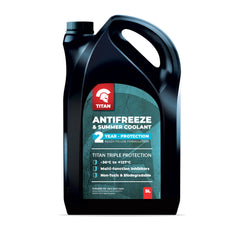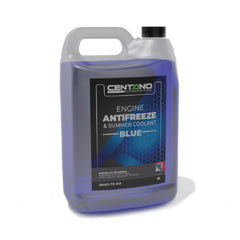WHAT IS ADBLUE?
 Diesel Exhaust Fluid (DEF), also known as Adblue, is a critical component for reducing the emissions of nitrogen oxides (NOx) from diesel engines. In this article, we'll discuss what Adblue is, how it works and whether you need it.
Diesel Exhaust Fluid (DEF), also known as Adblue, is a critical component for reducing the emissions of nitrogen oxides (NOx) from diesel engines. In this article, we'll discuss what Adblue is, how it works and whether you need it.
What is AdBlue?
Adblue is a colourless, non-toxic, and odourless solution composed of urea and deionized water. It is used to reduce the emissions of nitrogen oxides (NOx) from diesel engines. NOx is a harmful pollutant that contributes to smog formation and acid rain. AdBlue is injected into the exhaust system of a diesel engine to convert NOx into harmless nitrogen and water.
 Which cars need Adblue?
Which cars need Adblue?
Adblue is required for diesel engines that meet the Euro 6 emission standards. This includes cars, vans, and trucks. Euro 6 standards are the most stringent emission standards in the world and require diesel engines to emit less than 80mg/km of NOx. Adblue is also needed for some diesel engines that meet the Euro 5 emission standards implemented in 2009.
How does Adblue work?
Adblue works by injecting the solution into the exhaust system of a diesel engine. When the exhaust gases come into contact with the Adblue, a chemical reaction converts the harmful NOx into harmless nitrogen and water. This process is called Selective Catalytic Reduction (SCR). Adblue is stored in a separate tank in the vehicle and is automatically injected into the exhaust system as needed.
How often should I check my Adblue level, and how much will my car use?
The frequency of Adblue checks will depend on the make and model of your vehicle. Some vehicles have an Adblue level sensor that will alert you when the level is low. Others may require you to manually check the level using a dipstick or through the vehicle's infotainment system. Generally, checking your Adblue level at least once every three months or before embarking on a long journey is recommended.
The amount of Adblue your vehicle will use will depend on the make and model and your driving habits. On average, a vehicle will use approximately 1.5 to 2 litres of Adblue for every 600-650 miles driven.
Can I refill Adblue myself?
Yes, you can refill Adblue yourself. Adblue is widely available at petrol stations and other retail outlets and, of course, here on Autofluids.co.uk. It is sold in bottles or in bulk, depending on your needs. Some vehicles may have a built-in Adblue filling system, while others may require you to use a funnel to add Adblue to the tank. It is important to follow the manufacturer's instructions when refilling Adblue to avoid spills or other potential hazards.
Can running out of Adblue damage my car?
Running out of Adblue will not damage your car but will cause your vehicle to enter a "limp mode," limiting your engine's power and speed. This safety feature is designed to prevent your car from emitting harmful pollutants into the environment. If you continue driving without refilling your Adblue tank, your vehicle will eventually stop running. Therefore, filling your Adblue tank as soon as the warning light appears is essential to avoid any inconvenience or unexpected breakdowns.
In conclusion, Adblue is essential for reducing NOx emissions from diesel engines and ensuring your Euro 6 engine continues to run as designed.


